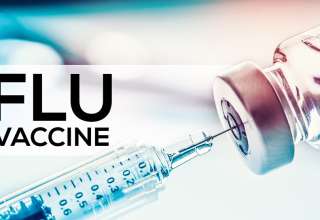
When you head to the grocery store, you can’t miss the entire aisle of wellness products and supplements spilling over the shelves. Nor can you miss the many influencers and people posting what vitamins they take to maintain their overall health.
Supplements from reputable brands like Supplement First from supplementfirst.com continue to be taken by millions of Americans for many reasons. Some take them because of their less-than-perfect diet, while others have to due to medical conditions or diets.
Either way, supplements can feel like the shortcut to healthier lives. However, there have been a few doubts raised over whether supplements are actually good for us. We tackle more about the truth behind taking supplements like Supplement First here.
Supplements Aren’t Always Safe
In most cases, supplements aren’t likely to have health risks. Even then, it’s still best to be careful with what you consume. And you may be surprised to know that supplements may have side effects and won’t work as expected for everyone.
For example, certain supplements can interact with other medications you take. They may also increase certain health risks in those with health conditions like liver diseases or individuals about to have surgery.
Moreover, not all supplements have been tested in children or pregnant an nursing women, which is why extra precautions are requires.
Another thing to remember is that the federal regulations for supplements aren’t as strict compared to prescription drugs. You might even find supplements containing ingredients not listed on their label, with some of these ingredients being unsafe.
Some products may also be marketed as supplements and include prescription drugs, which are prohibited!
Here are certain supplements that may have health risks:
- Vitamin K can reduce effectivity of blood thinners
- Ginko may increase blood thinning
- St. John’s Word can make birth control, antidepressants, and other drugs less effective
- Herbal supplements like kava or comfrey can damage the liver
- Vitamin A and beta-carotene can increase lung cancer risk in smokers
You Can’t Out-Supplement an Unhealthy Diet
Regardless of why you take supplements, you shouldn’t be taking them solely to outsmart an unhealthy diet. Supplements are NOT a replacement for nutritious diets. As the name suggests, supplements are only supplementary and will enhance health benefits that a complete diet provides.
That is why you must never use supplements to replace real food. A multivitamin won’t do as much compared to a delicious, nutritious salad.
Always Speak with Your Doctor Before Taking Supplements
With all this in mind, is it still worth taking supplements?
That depends! Some people will still require supplements, with their doctor recommending them based on their individual condition. Discuss your options with your healthcare provider as the effectiveness and safety of supplements you take will depend on your health and overall situation.
Wrapping It Up
While supplements aren’t the root of all evil, it’s best to be cautious and speak with your doctor to ensure you’re getting the right amount of nutrients from your diet and supplements.

















